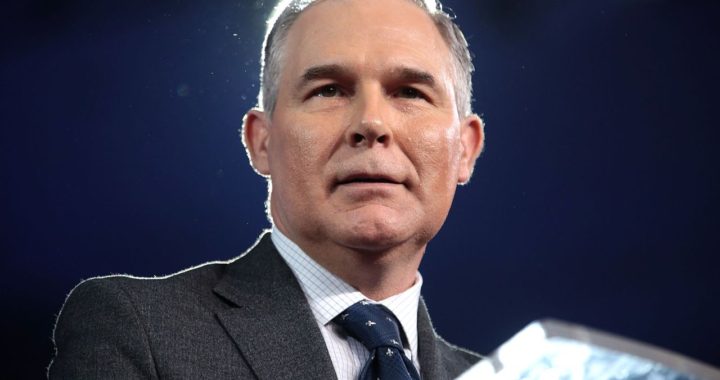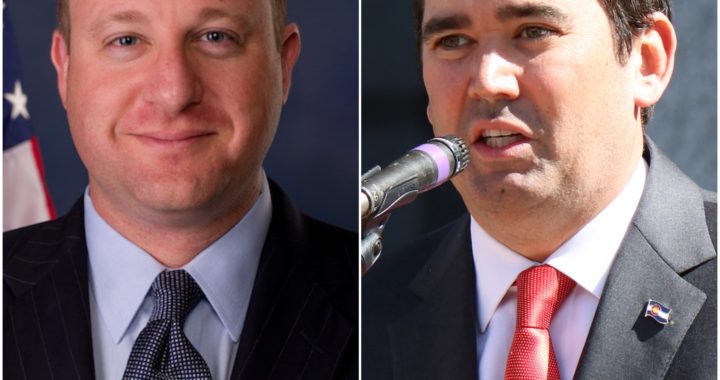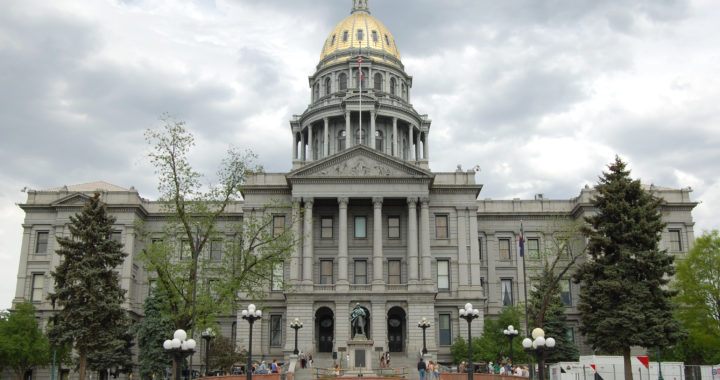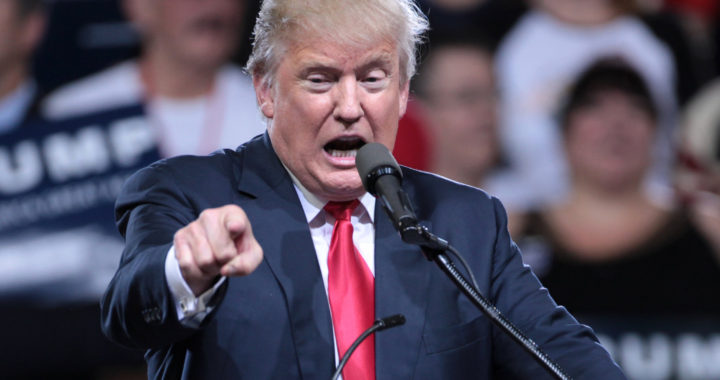In spite of all the good work that Scott Pruitt has done as the head of the EPA, in early July, he decided to call it quits, ending one of the most fascinating periods in the history of the government agency and creating a cloud of uncertainty around the future of the EPA’s current deregulatory trend.
Category Archives: Oil and Gas Politics
What Do Colorado’s Candidates for Governor Have to Say About Oil and Gas?
With incumbent governor John Hickenlooper being ousted this fall thanks to term limits, Colorado citizens will have the joy of watching two new hopefuls battle it out for the title of governor of Colorado.
Though several topics will inevitably get coverage over the course of the campaign, the future of Colorado’s energy sector will necessarily remain front and center. That’s why it’s so important to know what the major gubernatorial candidates — Democrat Jared Polis and Republican Walker Stapleton — believe when it comes to oil and gas in the Centennial State.
Jared Polis Is a Man of Two Minds
If the Democrats want to reclaim the Colorado statehouse by putting up another centrist like Hickenlooper, then they’ve found their man in Jared Polis. At least, that’s how it seems now that Polis has entered the governor’s race. Speaking to Colorado’s business community, Polis praised the “robust” energy sector in Colorado, explicitly calling out the advanced oil and gas extraction in the state.
That all sounds promising until you look at Polis’ long-term record. According to The Denver Post, four years ago, Polis supported not one, not two, but nine ballot measures designed to obstruct oil and gas operations in the state.
Polis’ wavering on the topic of energy has caused ripples of doubt among Democrats in the state. Anti-fracking activist Xiuhtezcatl Martinez even wrote, “The problem with Jared is I’m not sure which Jared will show up.” Industry professionals wonder the same thing (though probably from a different perspective).
Walker Stapleton Does Not Mince Words
Throughout his campaign, Republican nominee Walker Stapleton hasn’t hesitated to speak about the future of Colorado’s energy sector. He’s also quick to point out the havoc that Jared Polis would wreak should he win the election. When asked whether or not he was accepting money from the oil and gas industry, Stapleton (along with 75 percent of the other candidates) proclaimed that he indeed was accepting donations from the industry. In fact, he said that it would take more funds to overcome Jared Polis, who, in Stapleton’s words, “literally wants to end the future of the energy industry in Colorado.”
Stapleton has pledged to enact safety measures that will promote a responsible, productive oil and gas community for the foreseeable future. He’s in favor of capping unused wells and working toward more efficient fracking throughout the state.
Another Election Cycle, Another Fracking Battle in Colorado
In years past, statewide elections in Colorado brought a slew of hardly constitutional ballot initiatives. Although the state’s oil and gas industry continues to bolster the economy, 2018 is proving to be no different. Anti-energy activists have another onslaught of anti-fracking measures in the pipeline.
Front and center, however, is Initiative 97 from community organizer Suzanne Spiegel. Ninety-seven aims to expand Colorado’s fracking setback rules. Currently, the state prohibits new wells from being dug less than 500 feet from a resident’s home. Spiegel’s ballot measure would push that number from 500 feet to 2,500 feet, or nearly half a mile.
Rather than sit back and take it on the chin, however, the oil and gas industry has begun to fight back.
It’s Everyone’s State and Everyone’s Future
While the industry has, in years past, mainly waited for logic to prevail at the voting booths, the severity of Initiative 97 sparked a quick reaction from the industry. As Protect Colorado spokeswoman Karen Crummy explained to reporters, “This initiative is economically devastating to the state of Colorado. Not only would it cost thousands of jobs, but it would cost billions in actual economic impact.”
Make no mistake, folks, as the Colorado oil and gas industry goes, so goes the state’s economy.
Legislation on Behalf of Oil and Gas
In addition to actively combatting Initiative 97, the oil and gas industry has enacted a series of other ballot measures — Initiatives 108 through 113 — designed to ensure that property owners would be compensated if the state passed new regulations that diminished the value of their land and the resources underneath.
Measures 108 through 113 have another intent, as well. If passed, they will help cement the relationship between Colorado and the industry and allow the two entities to move forward hand in hand toward a brighter economic future.
Not Just the Work of ‘Evil’ Corporations
When word gets around that the oil and gas industry is out there campaigning on behalf of fracking, there’s a tendency for the resulting articles to paint those efforts as nefarious. No doubt the legal efforts undertaken by the oil and gas industry will be cast in a negative light right up until the votes get cast.
It’s important to remember that these initiatives get implemented by the citizens of Colorado who rely on the oil and gas industry for their livelihood. Recently, a group of citizens showed up to protest a new fracking project in Greeley. Before the residents crowded around the project, the industry held a hearing to allow these people to voice their concerns.
The most poignant comment, however, came from an unnamed fracking employee — whose comment was buried in the middle of the fifth paragraph, it should be noted. “I’ve been employed by the oil and gas industry for eight and a half years,” she said. “I am proud of the safety measures that we put in place to protect our environment, our communities and our employees.”
Satisfaction and pride in a job well done don’t play as well as niche public outrage, it seems.
Boulder County Continues to Attack Fracking, As a ‘Cautionary Step’
On Wednesday, May 16, the Boulder City Council voted unanimously to extend its infamous fracking moratorium by an additional two years. In spite of a prior conflict with state authorities last year, Boulder’s moratorium serves as a mostly ineffective legislative move that does virtually nothing to stymie fracking in Colorado.
But, golly, if those Boulderites aren’t extra proud of themselves for taking a stance.
Adding Two Years to the Moratorium
As the City Council voted to extend the Boulder fracking ban another two years, legislators were positively preening over their success. In speaking to reporters, however, Boulder Mayor Suzanne Jones confessed that the county had not received an application to drill in a decade. In fact, the city’s first ban on fracking came in 2013, fully five years after oil and gas operators had moved on to greener pastures.
Still, the decision was made to add another two years to the Boulder fracking ban as a “cautionary step.”
It’s a Statement, Just That and Nothing More
It’s worth pointing out that — at the same meeting that extended the ban — city councilors voted to enact a ban on assault weapons, high-capacity magazines, and bump stocks. Taken hand-in-hand, the bans are a clear sign of Boulder’s real intent: to posit themselves as the kind of place where liberal ideas are incorporated without question.
As a means to attract new residents, the Boulder fracking ban is a solid marketing gimmick. Last year, Colorado attorney general Cynthia Coffman filed a lawsuit against Boulder County, calling its moratorium unconstitutional. Though the AG eventually dropped the suit of her own volition, Boulder liberals took the court decision as a big win and touted it as such.
It wasn’t.
The Boulder Fracking Ban Is Harmless
According to Colorado Oil and Gas Association (COGA) spokesperson Scott Prestidge, Coffman didn’t need to pursue her case against Boulder, because prior court cases have already determined that local governments do not have the authority to regulate oil and gas production.
Those decisions can only be made in the statehouse. Both Longmont and Fort Collins have learned that lesson the hard way. In other words, should an oil and gas company decide to explore the mineral wealth under the ground in Boulder, the county’s fracking ban will have little-to-no impact on their progress.
Boulder, the City of Stylish Liberals
The city council of Boulder has made it very clear where they stand, and they’re happy to remind anyone and everyone who will listen time and time again. It’s just a shame that their many public proclamations have no legs to stand on when it matters. The city’s lack of oil and gas business isn’t a result of Boulder’s fracking ban; it’s a result of industry indifference.
U.S. Crude Oil Hits Three-Year High As Iran Potentially Faces New Sanctions
Today, oil price rose nearly 2 percent, hitting a high not achieved since November 2014. While the uptick in price is partially-attributed to limited supplies, the market responded to possible news of new U.S. sanctions against Iran. Continue reading





